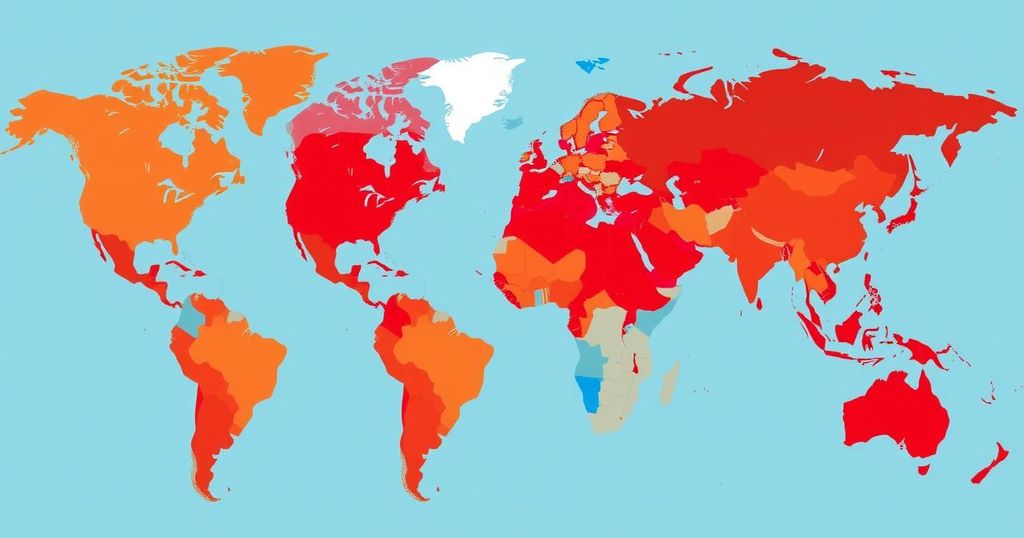The U.S. Department of State has issued Level 4 ‘Do Not Travel’ advisories for multiple countries due to rising crime, political instability, and various safety concerns. Key nations affected include Afghanistan, Venezuela, and Iraq, among others. These advisories highlight significant risks for American travelers, necessitating reconsideration of travel plans and emphasizing the importance of safety measures.
In a recent announcement, the U.S. Department of State has elevated travel advisories for various spring break destinations, including Afghanistan, Belarus, Venezuela, and more. These advisories indicate escalating crime rates, political instability, and the rise of terrorism, prompting a collective shift in American travelers’ perceptions of these regions. Tourists are now urged to reassess their travel plans to ensure safety.
Countries like Afghanistan and the Democratic Republic of the Congo face significant dangers due to ongoing conflicts and criminal violence. The U.S. government has explicitly discouraged all travel to these nations due to risks such as kidnappings, terrorism, or lack of medical services. Similarly, Lebanon, beset by political turmoil and economy instability, poses considerable hazards for American citizens who may find themselves in perilous situations.
Belarus has also been highlighted due to governmental repressions, while Iraq continues to be a dangerous territory due to the ongoing presence of armed groups like ISIS. Travel warnings reflect the heightened dangers posed to those who venture into these complicated environments. Ukraine suffers similarly, as it remains a conflict zone due to the ongoing war initiated by Russia.
Venezuela and Haiti depict critical humanitarian crises amplified by political instability, making travel perilous. Citizens in these regions frequently confront violence, kidnappings, and systematic breakdowns in public services that severely threaten traveler safety. Likewise, Iran and North Korea present unique challenges for travelers, including the political landscape that often leads to detention and harassment of U.S. citizens.
Despite these alarming travel advisories, many tourists continue to show interest in visiting these destinations. The U.S. Department of State requires travelers to remain informed and emphasizes safety precautions such as engaging with local authorities, enrolling in traveler assistance programs, and securing travel insurance.
As the travel industry adapts to these changes, airlines and tourism companies will need to reassess their travel offerings, potentially leading to a reduction in flights or tours to these high-risk locations. Ongoing vigilance and informed decision-making will remain essential for travelers during spring break and beyond.
As we approach the spring break season, awareness of travel risks in certain countries has become paramount. The issuance of Level 3 and Level 4 travel advisories serves as a crucial reminder about the need for safety and informed planning in travel decisions. The travel industry is expected to respond to these advisories, necessitating that tourists remain vigilant and make informed choices to ensure a secure travel experience.
Original Source: www.travelandtourworld.com




